Northeast Indiana Veterinary Emergency & Specialty Hospital
Effective 3-25-2020:
To best protect our dedicated team members and follow the recommended guidelines of the CDC, we will be instituting the following changes.
General Information:
1. When at all possible – call our office prior to arrival. This will enable us to best prepare and give you directions on these new protocols.
2. We are encouraging all clients to download and print the PDF version of our registration form to complete ahead of your arrival. The form can be found on our website at NIVES24h.com.
3. The front door will be locked. Please call our office at 260-426-1062 when you arrive.
Patient Intake Procedures:
1. If you have a respiratory illness and/or fever – find someone else to bring your pet to the hospital.
a. If are ill and must bring your pet in yourself – you must remain in your vehicle. Call our office once you arrive. A staff member will get your registration information and send someone out to get your pet.
b. Please have your pet ready, waiting outside your car. Dogs will be brought in using one of our hospital slip-leads. Collars/leashes are to remain with owners. Cats will be brought in using owner carriers after being wiped down with a disinfectant.
2. If you are healthy – call ahead of your arrival for more detailed instruction on how to have your pet treated.
a. When permitted into the lobby, a staff member will direct you on how to transfer your pet to our care team and complete your registration.
b. We will confirm your cell phone number and ask you to wait in your car.
c. A doctor will perform an exam and contact you by phone to discuss a treatment plan and options for care.
Patient Discharges, Visitation & Prescription Refills:
If your pet is set to go home – call our office to schedule a discharge time. Once you arrive, please call our office and the ICU nurse will give detailed discharge instructions over the phone.
For stable pets: we are prohibiting all patient visits. You can call for updates and to schedule discharge appointments.
For critical patients: visitation will be limited to no more than 1 person and for a maximum of 20 minutes. We are requesting no more than 1 visitation per day; however additional visitations will be permitted on a case by case basis.
No walk-in medication refills will be honored. If you currently receive pet medications from our hospital – you must call ahead for any needed refills and schedule a time for pick up with our reception staff.
The Governor of Indiana has issued an executive order directing veterinarians “to cancel or postpone elective and nonurgent surgical or invasive procedures beginning April 1, 2020.”
Per our Governor’s order: An "elective or non-urgent" procedure includes any surgery or invasive procedure which can be delayed without undue risk to the current or future health of the animal as determined by the animal's veterinarian.
At NIVES, we will follow the guidelines of the American College of Veterinary Surgeons (ACVS) to determine when surgical intervention is justified. “Urgent or emergent surgical treatment is appropriate when performing surgery that will provide relief, and a viable non-surgical treatment is not available or practical.”
The following list gives examples of urgent and emergent surgical interventions that we will continue to provide for your clients and their patients during this time.
Patients suffering trauma (e.g., soft tissue trauma such as degloving, shear, laceration, and burn injuries; orthopedic trauma such as fractured bones or dislocated joints)
Patients having difficulty breathing due to a surgically correctable cause
Patients with signs of shock due to a surgically correctable cause
Patients with neurologic injury
Patients with severe lameness or joint instability
Patients with urinary tract obstruction (partial/complete) or urinary leakage
Patients showing signs of intractable abdominal pain or other signs consistent with an acute abdomen (e.g., perforations, penetrations, gastrointestinal obstructions or leakage, organ displacements or torsions, hemoabdomen, biliary obstruction or leakage/impending leakage, peritonitis)
Patients with unresolvable dystocia
Patients experiencing significant morbidity secondary to a neoplastic condition
Surgery will be postponed for elective procedures and for stable patients that can be managed medically without significant risk of making their condition or prognosis worse. We are still available to provide consultations for these patients, but their procedures will be scheduled after the order from the Governor has been lifted.
Sincerely, Bradley R. Coolman, DVM, MS, DACVS Rebecca A Essig, DVM, MS, DACVS
